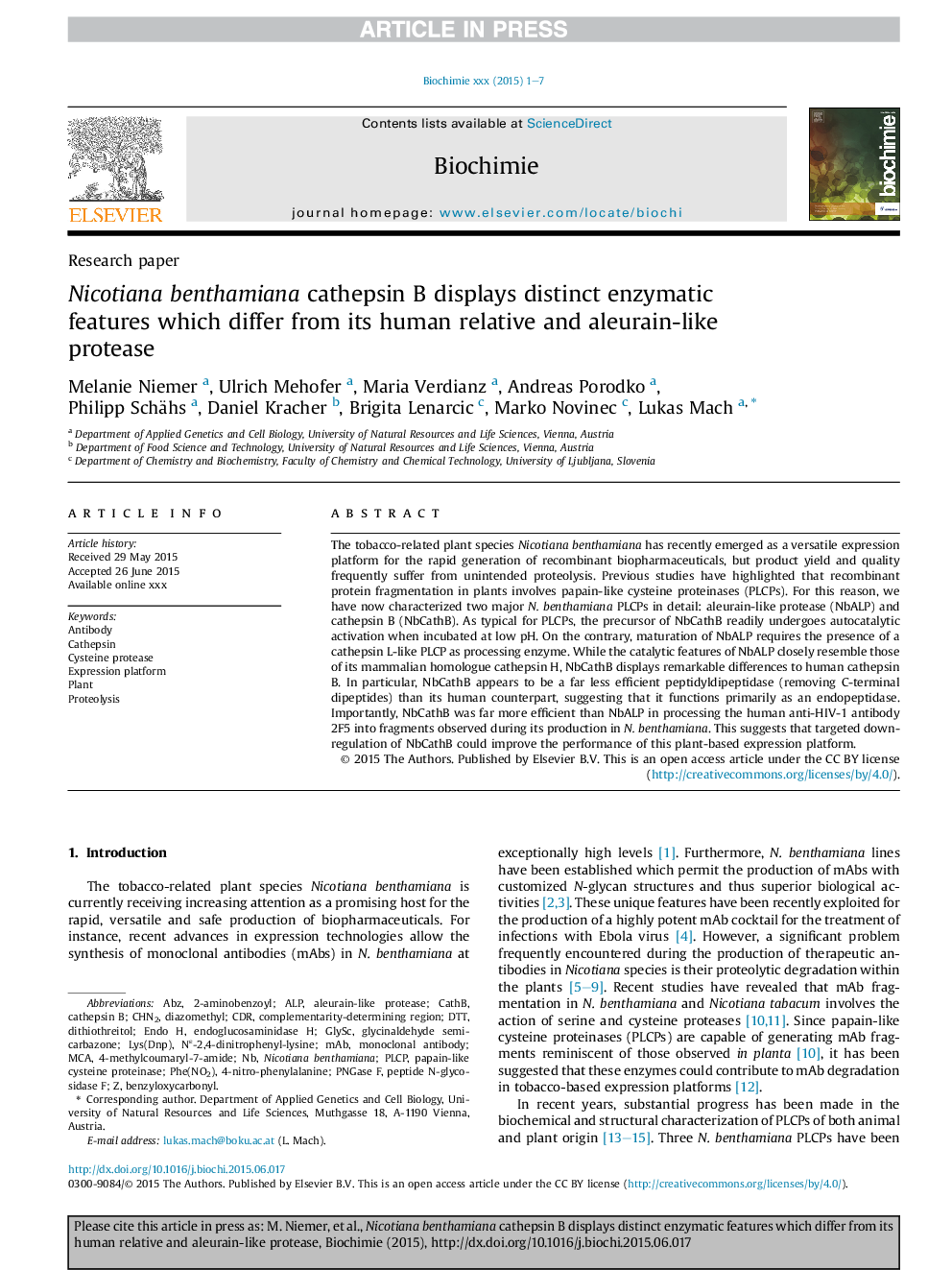| Article ID | Journal | Published Year | Pages | File Type |
|---|---|---|---|---|
| 8304461 | Biochimie | 2016 | 7 Pages |
Abstract
The tobacco-related plant species Nicotiana benthamiana has recently emerged as a versatile expression platform for the rapid generation of recombinant biopharmaceuticals, but product yield and quality frequently suffer from unintended proteolysis. Previous studies have highlighted that recombinant protein fragmentation in plants involves papain-like cysteine proteinases (PLCPs). For this reason, we have now characterized two major N. benthamiana PLCPs in detail: aleurain-like protease (NbALP) and cathepsin B (NbCathB). As typical for PLCPs, the precursor of NbCathB readily undergoes autocatalytic activation when incubated at low pH. On the contrary, maturation of NbALP requires the presence of a cathepsin L-like PLCP as processing enzyme. While the catalytic features of NbALP closely resemble those of its mammalian homologue cathepsin H, NbCathB displays remarkable differences to human cathepsin B. In particular, NbCathB appears to be a far less efficient peptidyldipeptidase (removing C-terminal dipeptides) than its human counterpart, suggesting that it functions primarily as an endopeptidase. Importantly, NbCathB was far more efficient than NbALP in processing the human anti-HIV-1 antibody 2F5 into fragments observed during its production in N. benthamiana. This suggests that targeted down-regulation of NbCathB could improve the performance of this plant-based expression platform.
Keywords
Related Topics
Life Sciences
Biochemistry, Genetics and Molecular Biology
Biochemistry
Authors
Melanie Niemer, Ulrich Mehofer, Maria Verdianz, Andreas Porodko, Philipp Schähs, Daniel Kracher, Brigita Lenarcic, Marko Novinec, Lukas Mach,
